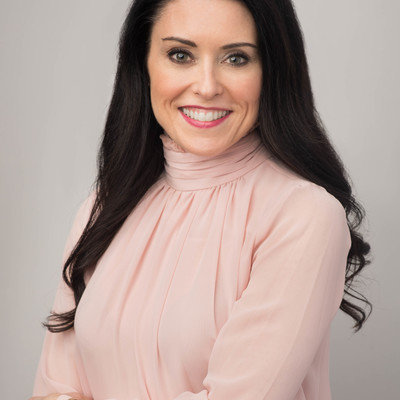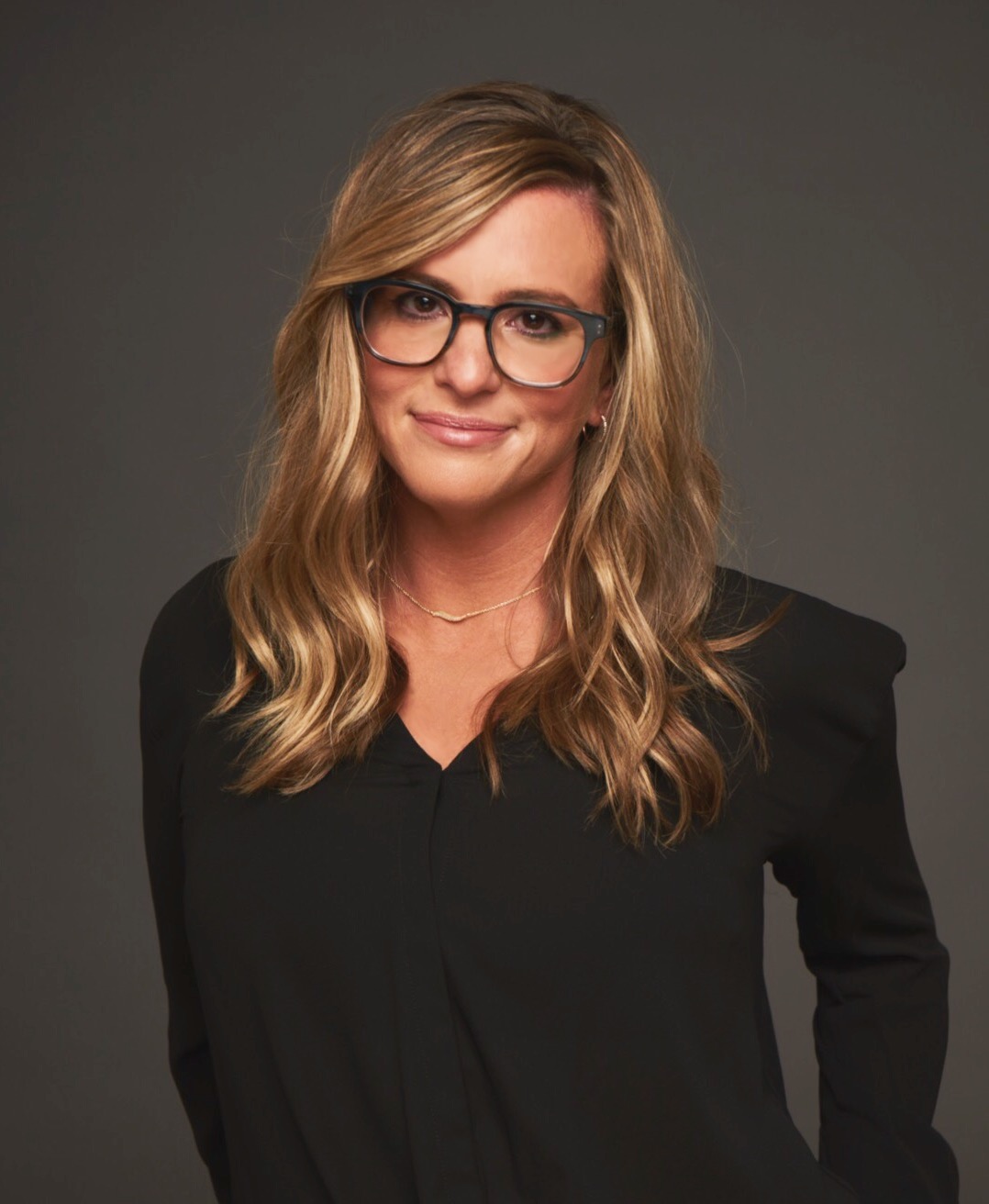First, know what game you’re playing. Second, define success on your own terms.
As part of my interview series on the five things you need to know to become a great author, I had the pleasure of interviewing Marissa Orr.
Marissa Orr began her Google career over 15 years ago as a founding member of Google’s Sales Operations & Strategy team, after which she worked as Vertical Marketing Manager at Facebook. She has conducted talks and workshops for thousands of people at diverse organizations across the globe. Originally from Miami, she now lives in New Jersey, with her three children. Her debut book “Lean Out: The Truth About Women, Power, and the Workplace”releases on June 11, 2019 via HarperCollins Leadership and is available for preordernow. See more at https://www.marissaorr.com/
Thank you so much for joining us! Can you share a story about what brought you to this particular career path?
During my time working at Google, there were a spate of thought leadership and training programs aimed at helping their female employees succeed. I’ve always been passionate about helping women, so naturally I got very involved in these efforts and attended everything they offered. But after a while, I became disenchanted. The discussions never seemed to be truly real or honest, and they lacked any sort of practical application to our daily lives.
I decided to write my own perspective on the topic, which grew from one presentation into a series of lectures that I presented at other companies and even a few colleges across New York City.
In 2016, I left Google after 13 years to start a new job at Facebook. Part of what attracted me to the company was their role in the public conversation about women at work, and I figured they would be the ideal place to support my lecture series. But Facebook turned out to be much different than the utopian sisterhood I envisioned. I was relentlessly bullied by a powerful female executive, and it was one of the most dark, isolating experiences of my life. With my identity as a conscientious, well-respected hard worker unraveling, I started asking myself those questions that only seem to surface when you’re at your absolute lowest point: who am I and what do I really want? The whole experience forced me to come to terms with what I had always known but until then refused to admit: I was never going to be truly happy in the corporate world. In my heart, I desperately wanted to pursue my dream of writing a book and being a speaker on women’s issues. So in the end, my time at Facebook was an absolute gift. Had I stayed comfortable and happy at Google, I may have never ended up writing this book and following my true passion.
Can you share the most interesting story that occurred to you in the course of your career?
The one that seems to resonate most with other women was around my experience at Facebook being bullied. When I give speeches, I tell many stories about work, but people almost always want to discuss that one in particular. There seems to be an epidemic of emotional abuse at work and many women feel we don’t talk about it enough.
Can you share a story about the funniest mistake you made when you were first starting?
When I was just starting out, I was chatting with a friend on AOL Instant Messenger (it was that long ago) and complained to her about one of the senior managers on our team. But I accidentally sent it to the manager instead of my friend. It wasn’t funny at the time, but I can look back on it now and laugh. I learned to be super careful about who I’m sending messages to and always double check the recipient’s name.
What are some of the most interesting or exciting projects you are working on now?
With nine weeks until the book is released (as of this writing), my time is mostly dedicated to the official launch. Apart from that, I recently started working with a friend from Google who does comedy writing, and we’ve been brainstorming ideas for a screenplay.
What is the one habit you believe contributed the most to you becoming a great writer?
To cope with the emotional difficulty I experienced at Facebook, I turned to meditation, something I’d only tried once or twice in my life during college. It started out as just five minutes a day, whenever and wherever I could grab it, but it is now something I do religiously for 20 minutes every morning and sometimes in the afternoon. Without it, I’m not sure I’d have been able to build up the discipline and behaviors necessary for writing a book.
Can you share the most interesting story that you shared in your book?
I tell a lot of stories in the book, so it’s hard to say what others would find most interesting, but I think one that’s funny and people can identify with is about a team building exercise we did at a team offsite at Google. Each person was assigned one of four colors that represented their personality type. I was a Green, which means I have a strong drive to help people, and my primary focus was on maintaining harmony. In other words, I was a hippie. To underscore the point, the color wasn’t just called Green, but Earth Green. In the corporate world, this is akin to being a sex offender. The opposite personality type of Earth Green was Fiery Red. Reds are competitive and have a strong drive to be in control, and their primary focus is on results — as opposed to Greens, who prioritize relationships.
I asked the HR person leading the exercise to tell us the colors of our executive leadership team, and it turned out that 11 out of 12 were red. It was a profound insight for me and gave me a whole new perspective on diversity.
What is the main empowering lesson you want your readers to take away after finishing your book?
I would like people to walk away with a new perspective on female strength, and to stop defining women in terms of how they stack up against men. I also encourage women to define success on their own terms using well-being as the metric instead of winning.
What was the biggest challenge you faced in your journey to becoming a bestselling author? How did you overcome it?
I’m a single mom of three kids, which means I’m the only source of income in my household. I left a very lucrative career in a safe and comfortable world to write a book and be a speaker. Based on the dynamics of the publishing industry today, my chances of success were slim to none. I’d never published anything before and had no social following or name recognition. Everyone thought I was insane, and honestly, I struggled with whether or not I was being a totally irresponsible parent. But I forged ahead and took the risk, and I created a few fallback plans in case things didn’t go as I’d hoped.
There was a book inside of me that had to be written, so in the end, I decided to trust myself and have faith in my ability to handle whatever came my way.

Which literature do you draw inspiration from?
I am a voracious reader, and I have a seemingly inexhaustible curiosity around psychology and human behavior. So that tends to be the subject I read most often. It helps me understand more about myself and make sense of the world.
What advice would you give to someone considering becoming an author like you?
Develop a routine and be disciplined about it.
What are your “5 things I wish someone told me when I first started”?
I think it would be just two things: 1. Know what game you’re playing and 2. Define success on your own terms.
You are a person of great influence. If you could start a movement that would bring the most amount of good to the most amount of people, what would that be?
I suppose it would be an embrace of the ideas in my book. Specifically, that women have a large untapped power in their ability to forge relationships for mutual gain. When women come together and coalesce around a common goal, they are unstoppable.
How can our readers follow you on social media?
I’m on Twitter as @Marissa__Orr
Thank you so much for this. This was very inspiring!


